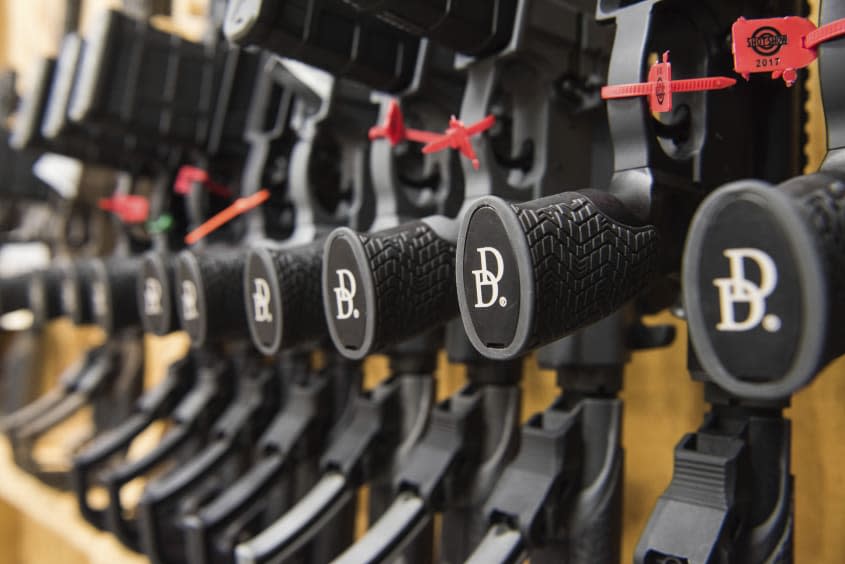Gunmakers: An industry sheds rules and norms

- Oops!Something went wrong.Please try again later.
The smartest insight and analysis, from all perspectives, rounded up from around the web:
A toddler holding an assault rifle. Santa Claus promoting "MK18 Monday." These are some of the advertisements used by Daniel Defense to sell guns like the one used to massacre children in Uvalde, Texas, said David Yaffe-Bellany and Jessica Silver-Greenberg in The New York Times. The Georgia-based gunmaker is the "poster child of egregious, aggressive marketing." Its founder, Marty Daniel, is a self-styled "provocateur" in the mold of former President Donald Trump. Daniel began designing his own accessories that could be mounted onto rifles, like lights and lasers, and won a $20 million military contract in 2002. "By 2009, the company had expanded to making guns for consumers," brandishing its military ties: "Use what they use." Salvador Ramos bought his Daniel Defense rifle online for $1,870, according to a photo of a receipt he posted on social media. The company even offers a buy-now, pay-later financing option for those who want to spread out the price of a costly weapon of war.
The gun industry "used to adhere to self-imposed rules and norms," said former firearms executive Ryan Busse in The Guardian, like restricting the sale of tactical gear. But about 15 years ago, the National Rifle Association turned to fearmongering and vitriol, and "some in the gun business realized this messaging could be adopted to sell more guns." The industry's trade association, the National Shooting Sports Foundation, used to responsibly police what could be displayed and marketed. But it has since "looked the other way" when marketing campaigns "promised a metaphorical 'man card' to any young man who purchased an AR-15." Weapons sales have generally "followed the nation's election cycle, spiking when Democratic elections aggravate fears of gun control, and dipping when Republicans come into power," said Champe Barton in Rolling Stone. That's usually most evident in red states, but this time Rhode Island and Michigan "saw month-over-month increases" in gun sales "that outpaced gun rights strongholds like Texas." Gunmakers' profits have soared.
A new law in Texas makes it harder for corporate America to take a stance, said Stephen Gandel in The New York Times. Banks like JPMorgan Chase publicly distanced themselves from firearms makers after the mass shooting in Parkland, Fla., in 2018. But the Texas law, aimed largely at banks that do business with the state, "bars state agencies from working with a firm that 'discriminates' against gun companies." Similar "firearm industry nondiscriminatory (FIND) legislation" is working its way through 10 other statehouses.
"When the Uvalde families are ready, they should go to court," said Timothy O'Brien in Bloomberg. In 2005, Congress passed federal liability protection that basically prevents "anyone from using federal courts to hold gunmakers and dealers liable for crimes committed with weapons they sell." The law makes it difficult to successfully sue gunmakers — but not impossible. In February, Remington settled with families whose children were killed in the Sandy Hook massacre for $73 million. That suit, filed in state court seven years earlier, accused Remington of "marketing its weapons to mentally unstable buyers." That lawsuit didn't yield a conclusive trial, but "it breached the gun industry's armor."
This article was first published in the latest issue of The Week magazine. If you want to read more like it, you can try six risk-free issues of the magazine here.
You may also like
5 cartoons about the Uvalde police response
7 cartoons about America's gun crisis
Why Rihanna's decision to launch Fenty Beauty in Africa is such a big deal

